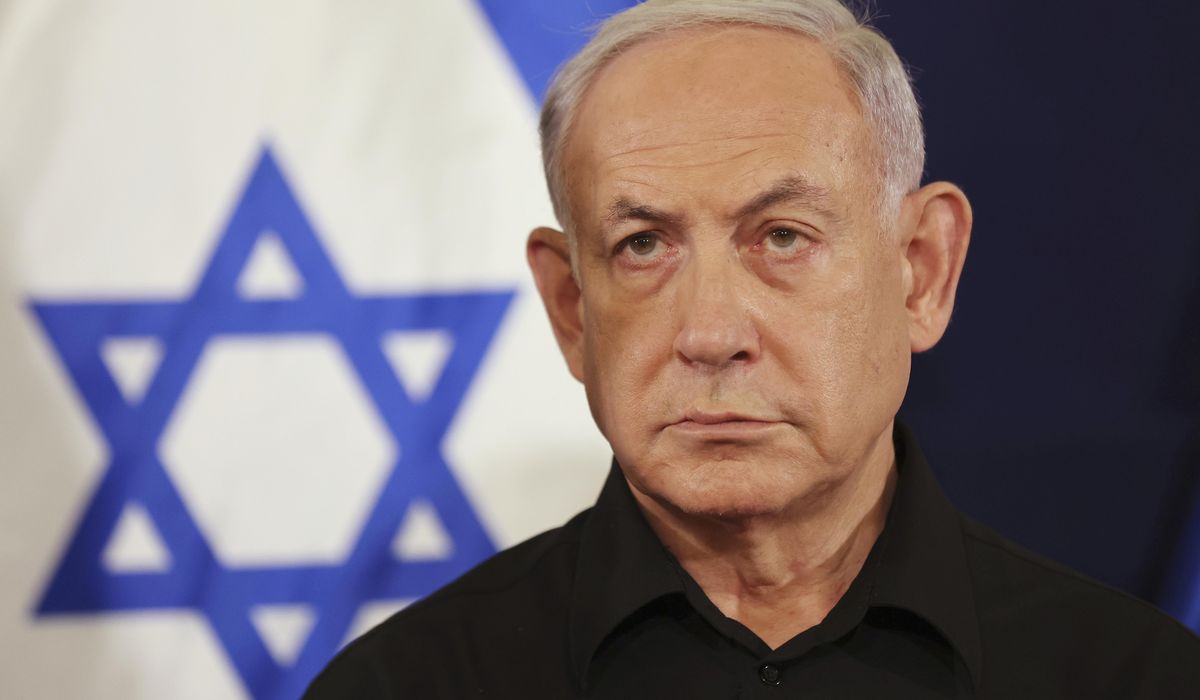


Israeli Prime Minister Benjamin Netanyahu said Sunday “there could be” a deal for a prisoner release by Hamas, but no deal so far has been reached and Israel’s military intends to proceed with its ground operation in Gaza.
“I think the less I say about it, the more I’m increasing the chances that it materializes,” Mr. Netanyahu told NBC’s “Meet the Press.”
His comments follow reports that international mediators, including the U.S. and Israeli intelligence chiefs, have been working behind the scenes toward a limited cease-fire agreement in Gaza so a prisoner release or exchange could occur.
CIA Director William Burns and Mossad Director David Barnea discussed the situation last week with the prime minister of Qatar — the Persian Gulf nation playing host to Hamas’ political leadership.
The possibility of a pause in fighting between Israel and the Palestinian militant group was part of the discussion with Qatari Sheikh Mohammed Bin Abdulrahman al-Thani, sources familiar with the meeting told Reuters, although the outcome of the discussion was unclear.
At the same time, President Biden expressed pessimism Thursday about the chances of a three-day humanitarian cease-fire in Gaza, telling reporters such a pact was unlikely.
“None. No possibility,” Mr. Biden said when asked about a cease-fire.
Other world leaders, including French President Emmanuel Macron, have called for a cease-fire. While the Biden administration has rejected those calls, the White House has raised the possibility of a “tactical pause” to the fighting in Gaza.
The administration has argued that a pause could provide Palestinian civilians with opportunities to flee to safety from areas where the fighting has intensified, ensure humanitarian assistance is reaching civilians and enable the release of hostages.
White House national security spokesperson John Kirby said last week the administration would want a humanitarian pause “as soon as possible.”
Mr. Netanyahu said Sunday that the only reason Hamas may be willing to reach a prisoner swap deal with Israel is because of “military pressure.”
“The extraordinary work that the [Israeli Defense Forces are] doing, putting pressure on the Hamas leadership, that’s the one thing that might create a deal,” he told “Meet the Press.”
“If a deal is available, well, we’ll talk about it when it’s there,” he said. “We’ll announce it if it’s achieved.”
Israeli officials say Hamas terrorists took 242 Israelis and others hostage during the militant group’s Oct. 7 assault on southern Israel. Discussions toward a potential prisoner exchange have reportedly featured the possibility that Israel may release Hamas operatives it has in custody, although analysts close to the Israeli government say such a scenario is unlikely.
There have also been reports of a potential deal in which a small amount of fuel would be allowed to enter Gaza for the first time since the Israel-Hamas war began last month. In exchange, mediators are asking for Hamas to release 12 hostages, who are believed to include six Americans, a source close to the Palestinian militant group told Agence France-Presse last week.
• Jeff Mordock contributed to this article.
• Guy Taylor can be reached at gtaylor@washingtontimes.com.
